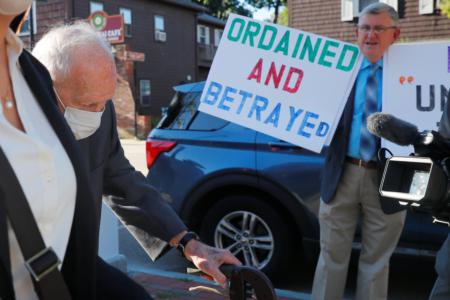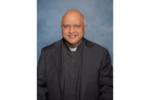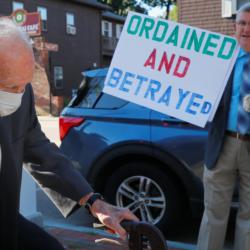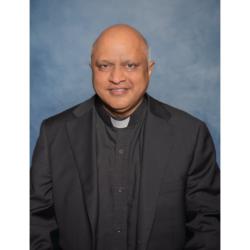Group aims to give parents more choice in sex-ed issue
Is there a link between the discussion of sexual practices in schools and the recent highly-publicized incidents of students caught performing those same sexual acts on school buses, in school lavatories, and in other public areas?
R.T. Neary, founder and director of Project PARENT, along with other parents’ rights coalitions, believe that such a connection exists. Project PARENT (Parents Advocating Responsible Education Not Turmoil) is an ad hoc, nondenominational group of parents that was formed within the last year and a half to address concerns about sex education in schools.
"I know, having dealt for many decades with students, that they are copy cats," said Neary, a retired public high school teacher of 30 years. "The opening of any discussion will tempt them ultimately to try it. They test boundaries, which is a tendency of adolescents."
"I have not been rebuffed on that --that there is at least a tangential connection between discussing this subject matter in school and then what the students get involved in their non-school activities," he continued. "I'm not saying that it's the total reason for it because we know what the mass media is serving up to them constantly ... but it serves as reinforcement."
Neary, feels that “health classes” have become periods to discuss sex as a “recreational activity” rather than classes on the “biologic and hygenic” aspects of sexuality.
After doing extensive research into the content of sex education classes in schools throughout the Commonwealth, Neary decided to become an advocate for a piece of legislation that would give parents greater control over their child’s sex education.
"An Act Relative to Parental Notification and Consent" would require parents to give written consent before their child attends human sexuality classes.
"To me, it's a civil rights issue. It's a right of the parent to control what their children are subjected to, relative to these [human sexuality] values," said Neary. "The law would restore the parents' rights. I don't know of any parent who wants to automatically hand their rights over to someone else."
The legislation would change the current law on sex education from an “opt out” to an “opt in” approach, making the classes elective rather than mandatory. The current law, he said, requires students to attend human sexuality classes unless parents contact the school to have their child removed from the class. If a parent does so, the student is placed in the library or some other area while the class is in progress.
"You know how stigmatizing that is," he said, "It stigmatizes the youngster."
The proposed “opt in” model would allow parents time to review material of a sexual nature that would be presented in health class and question teachers and administrators on the curriculum. Parents would then have to make an affirmative decision to enroll their child in the class. In addition, the proposed law would also allow teachers, without retribution, to decline a teaching assignment if the curriculum conflicts with their moral or religious views.
"It's a 180 degree turn from what we have now," said Neary.
According to Neary, many parents say that their children are embarrassed when singled out to leave the classroom. Some students, he said, are even reluctant to tell their parents what is being taught in the classroom for fear that they would be removed.
A number of parents, he said, have taken their children out of public schools and placed them in Catholic or private schools in order to bypass sex education classes. However, some families, Neary continued, cannot afford to pay for tuition at these schools and therefore it is important that public schools respect the moral and religious values parents are trying to instill in their children.
"There is such a large percentage of young people in public schools who come from traditional Orthodox or Roman Catholic backgrounds, who may go to CCD or other religious training, but that religious education is being counterbalanced in the public schools by such things as health education," Neary explained.
Neary was among those who testified in favor of the bill before the Legislature’s Joint Committee on Education, Arts, and Humanities Sept. 18.
The bill “statutorily returns to parents, guardians, and to educators basic rights which have been eroded and usurped during the last four decades since I entered what I would label two noble callings — public education and parenting,” Neary testified.
Also testifying, on behalf of the four Massachusetts bishops, was Maria Parker, associate director of public policy at the Massachusetts Catholic Conference. Shifting from an “opt out” to an “opt in” approach would “[preserve] the crucial role that parents should play in their children’s development in the delicate area of human sexuality,” she testified.
"It has been our strong position that parents, not the schools, serve as a child's primary guardian and teacher in moral matters," she stated.
"Many parents are shocked to learn about the types of materials to which their children are exposed. In the face of a culture that largely reduces human sexuality to the level of something commonplace, linking it solely with the body and selfish pleasure, the task of parents is crucially important," Parker continued. "Sexuality is an enrichment of the whole person -- body, emotions, and soul. Catholic parents are concerned that the current approach compromises their ability to hand on to their children the Church's holistic vision about the sacredness of human sexuality."


















